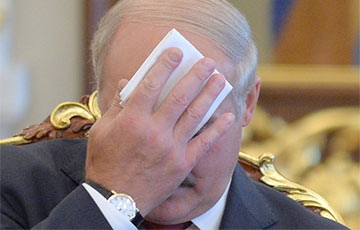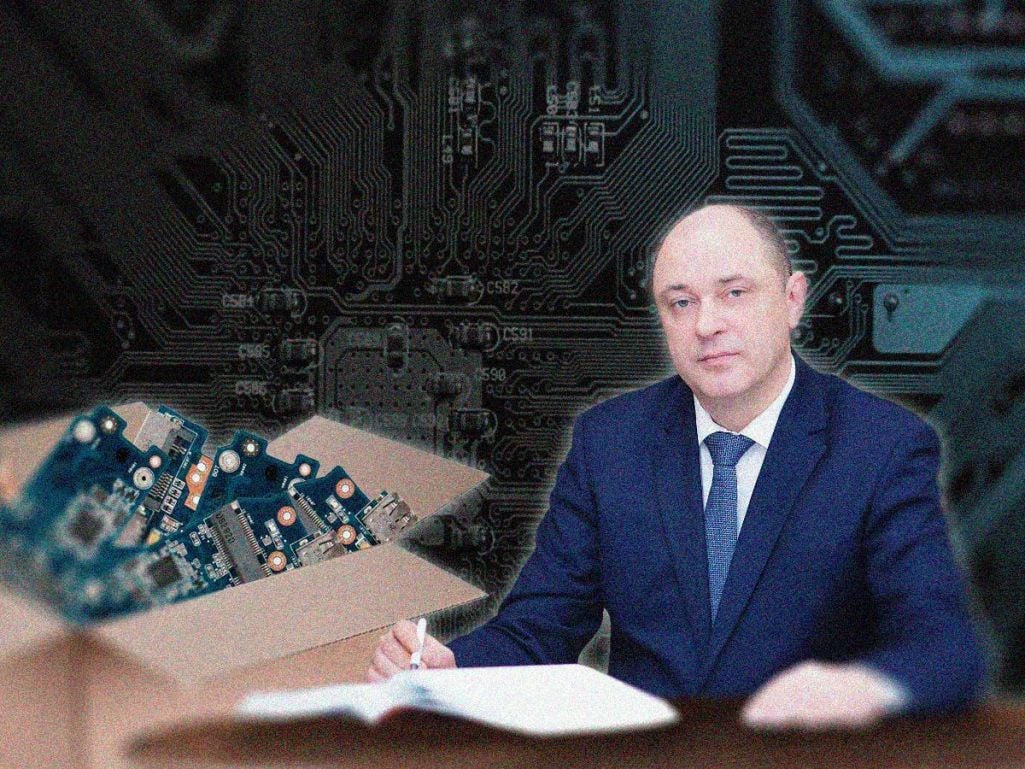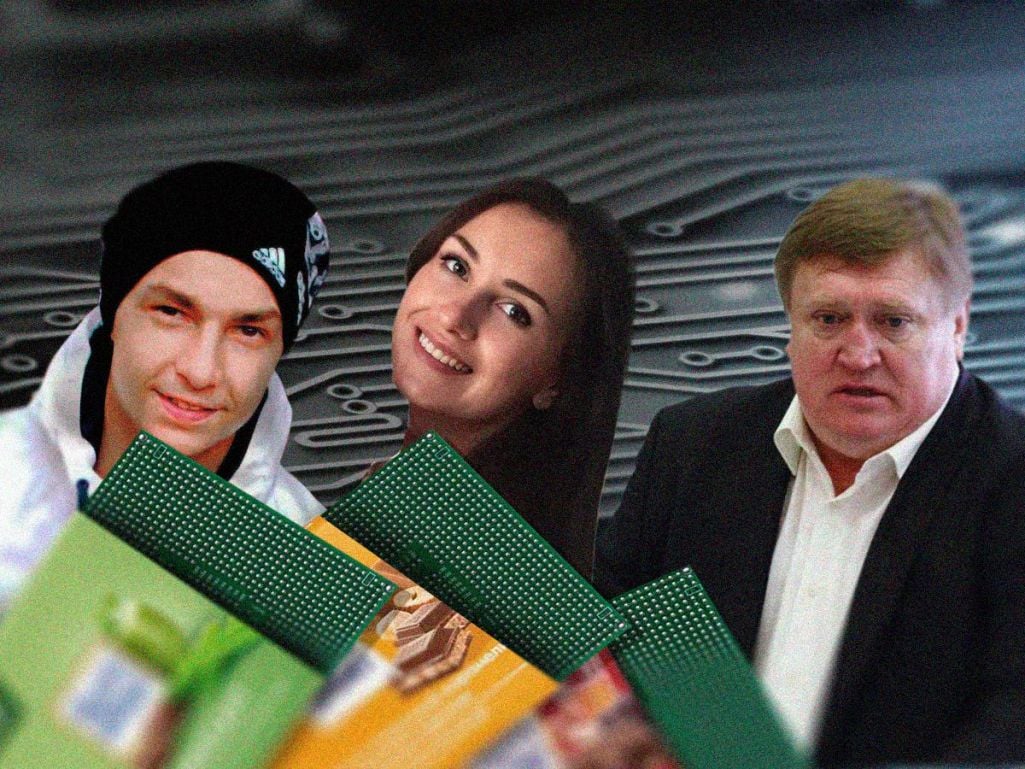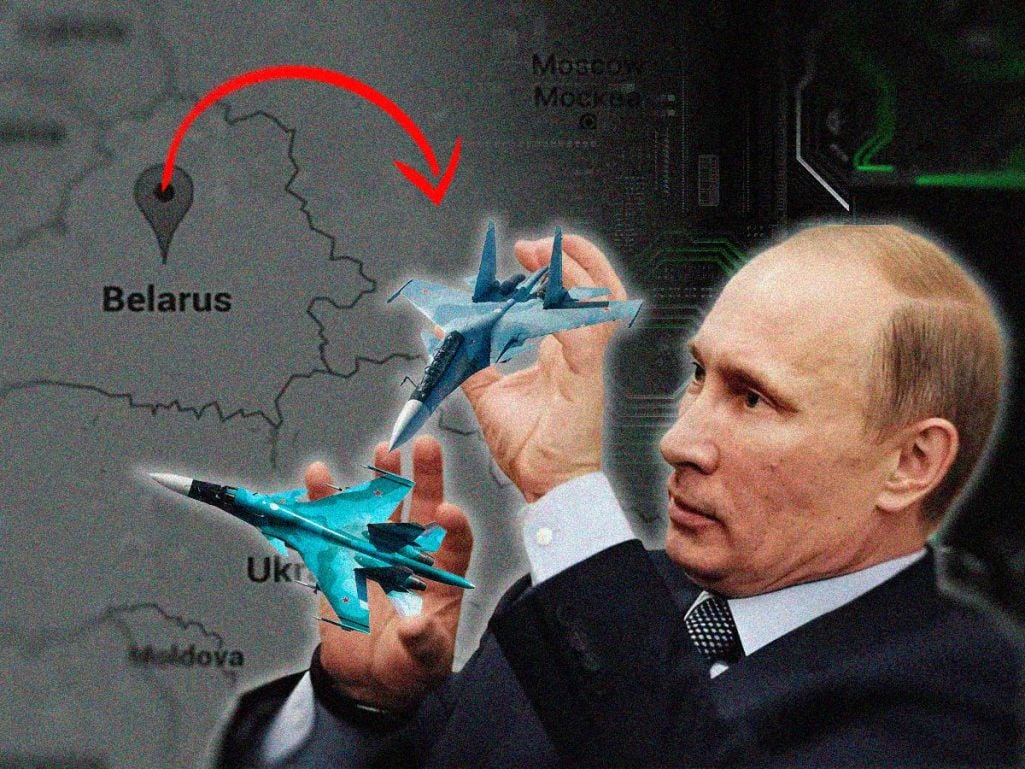Lukashenka Sells Sanctioned Western Microchips To Russia
6- 26.11.2024, 16:42
- 10,298

These are parts for fighter jets and missiles.
Belarus supplies Western-made components for fighter jets, missiles and drones to Russia, investigative journalists from the Belarusian Investigative Center have found out.
These goods are under sanctions from Western countries. To circumvent the restrictions, chains of companies have been created that are connected to the dictator Lukashenka's entourage and Russian military enterprises. Representatives of two companies themselves told journalists how to order the microchips.
Deadly deliveries
Belarusian companies sold more than $125 million worth of microchips to Russian enterprises from September 2022 to June 2024. Of these, almost $400,000 were Western-made. After the start of a full-scale war in Ukraine, they are prohibited from being sold to Russia and Belarus.
However, Belarusian companies not only purchased microchips made in the USA and the EU, but also resold them to Russian firms. Over 22 months, almost 10,000 Western-made microchips were sent from Belarus to Russia.
In April 2024 alone, the Russian military dropped more than 3,000 guided aerial bombs on Ukraine, said Ukrainian President Volodymyr Zelensky. Moscow uses Western-made microchips to launch and navigate them, for example, from the American company Intel. These microchips were found in shipments from Belarus to Russia.

Intel products can be used by Russia for Su-35S and Su-34 fighters, Korsar drones, and Kalibr missiles.
Under the supervision of a customs officer
One of the Belarusian companies that supplied microchips to Russia is Alexvit Ltd. From September 2022 to June 2023, it sent 131 microchips of American, Finnish, and German origin to Russia. Alexvit Ltd also supplies other sanctioned products to Russia, in particular tires.
The company's revenue after the start of a full-scale war increased approximately threefold and in 2023 amounted to approximately $247 million.
Since the end of June 2021, the owner of Alexvit Ltd. is Siarhei Barysiuk. He is the former deputy chairman of the State Customs Committee of Belarus. He was also a member of the expert council at the Customs Committee, where he previously worked, and headed the Belarusian Association of Customs Representatives.

Alexvit Ltd. offers services for the transportation of goods from Europe through Turkey to Belarus and Russia, customs clearance of auto parts from Europe and the USA for subsequent sale in Russia, sells freshly cut flowers, plants and seedlings, including from the European Union.
The company is associated with Viktar Sheiman, a long-standing and close associate of Lukashenka. In 2021, Sheiman, who among other things headed Lukashenka's affairs department, resigned, but still deals with Lukashenka's affairs as a special envoy. Companies associated with him are engaged in the supply of European cars through Belarus to Russia, bypassing sanctions.
A Belarusian Investigative Center correspondent contacted Alexvit Ltd. under the guise of a representative of a company that wants to order up to 1,000 microchips from Europe to Russia. They replied that the order was too small, and the company only deals with large volumes:
“Either it's a car or a container, and you have microchips, it will be a small box.”
At the same time, they asked for a phone number just in case and promised that an Alexvit Ltd. manager would call back.
Heading to the “East” (“Vostok”)
Another supplier of microchips is the Belarusian company OOO Logistics Company Vostok. According to Belarusian Investigative Center estimates, it sold more than 1,500 American-made microchips to Russia from December 2022 to March 2023. In total, during this time, the company exported more than 215,000 microchips to Russia for almost $800,000.
The company is owned by Aliaksei Matveyeu. At least from 2017 to 2019, he worked at the Belarusian Tennis Federation. In those years, it was headed by businessman Siarhei Tsiatseryn, who is under EU sanctions as a person from Lukashenka's inner circle.
Tsiatseryn imports some goods in circumvention of sanctions and sells them at a higher price.
Tsiatseryn's business partner Tatsiana Matveyeva is also Aliaksei Matveyeu's sister. And the company OOO Tas Global, which Matveyeu headed in 2017, has been owned by Siarhei Tsiatseryn since the end of that year.

Castling of seller and buyer
Investigators found out that “Logistics Company Vostok” does not deal with logistics, but can help with customs clearance of documents. This is what employees of the company itself told a Belarusian Investigative Center correspondent in a telephone conversation.
“The movements are ordinary. You tell us with whom to conclude a contract for purchase. An import contract. The shipping documents are prepared. With our help. We check at what prices, whether they are passable or not. Then we do customs clearance and sell to your buyer. Well, more precisely to you. Here, on the territory of the Republic of Belarus, or there, on the territory of the Russian Federation. Everything through sales contracts,” the company representative told a journalist who introduced himself as a potential client.
According to her, when purchasing goods in Europe, the buyer in the documents will be indicated as “Logistics Company Vostok”. After the order is delivered to Belarus, it will become the seller, and the real customer will be entered as the buyer in the papers.
Serial exporters of “banned goods”
In the supply chains, there were companies that had connections with other associates of Lukashenka. For example, OFS-Export LLC. It sold more than 1,200 chips to Russia from October 2022 to February 2024. This company is associated with Aliaksandr Shakutsin, the owner of the Amkodor holding. The EU and the US imposed sanctions against the businessman, calling him Lukashenka's “moneybag”. Shakutsin sells equipment with components in Belarus and Russia, which also fell under restrictions.
Another supplier of prohibited microcircuits to Russia is OOO Trading House Eksporttorg. This company is associated with businessman Aliaksandr Zaitsau, a former assistant to Lukashenka, according to the explanatory note to the EU sanctions against Zaitsau.
From November 2020 to the end of May 2021, Zaitsau owned OOO Trading House Eksporttorg. Then its owner became Yauhen Krakhotsin, who worked for Zaitsau's OOO Stishko for more than seven years.
According to the Belarusian Investigative Center, after the ban was introduced and until April 2024, Trading House Exporttorg supplied at least 825 American and European microcircuits to Russia. The company also supplies German motor oil and Apple equipment to Russia. It also received certificates for the import of meat from Spain.
Links in the defense chain
In Russia, one of the buyers of microcircuits is the company BaltElectron LLC. This company is under US sanctions as a supplier of dual-use microelectronics and other technologies for the Russian defense industry. The company calls itself “the first link in the chain of import of radio-electronic components” to Russia.
In 2022-2023, BaltElectron purchased microcircuits from three Belarusian companies: Chip Express LLC, ChipImport LLC, and Electrosale LLC. These three companies are interconnected. At different times, their directors and owners were the same people: Belarusians Dzmitry Savashynski, Viktar Tsybulko, Mikhail Rekhmunau, Yauhen Kryvalapau and Uladzimir Kalanskou.
Chipimport was liquidated in February 2024.
Another Belarusian company that supplied Russia with microchips is SD Electro LLC. The buyer of these goods is the Russian company Green-Chip LLC. Green-Chip clients cooperate with the Russian authorities and the military-industrial complex. A source in the Russian tax service told Belarusian Investigative Center about this.
Supply channels
A Belarusian Investigative Center journalist contacted Green-Chip under the guise of a buyer of microchips. They said that custom deliveries from the USA, Germany, Malaysia and Taiwan were possible. The number left by the journalist was later called from a Belarusian phone number. The caller introduced himself as Denis, who was contacting because of a request left in Green-Chip.
According to him, “this type of product” is made to order. If it is available in stock, delivery will take 6-10 weeks, but if you need to order the production of complex components, then 12-15 weeks and another two to three weeks will be needed for delivery.
“There is a company in Europe that consolidates a European warehouse, and then the goods arrive here. That is, two ways — either through Europe or through Asia. Depending on what kind of microcircuits,” the caller said.
Ordering microcircuits does not carry any risks, Denis assured: “Just send a request listing what you need, how much. And then it’s a matter of technique.” He specified that “our company here in Minsk is called “SD Electro”,” and sent his email address, which is linked to the domain sdelectro.by.

The sanctions iceberg
The leader in the total amount of Western microcircuits supplied to Russia from Belarus is the Belarusian OOO Pervy Kontinent. This company was created two months after the start of the full-scale war. From January to June 2024, it sold 1,665 microcircuits to Russian enterprises for over $155,000.
The owner and director of the company, Illia Tarasyuk, worked for about 20 years at enterprises of the military-industrial complex of Belarus. Among them are OAO Peleng and NP OOO OKB TSP, which are engaged in, among other things, the production of electronics for military equipment.
The main buyer of Pervy Kontinent microcircuits in Russia is OOO Stout. This company is under US and EU sanctions. As are some of its Russian clients, for example, OOO Fregat. The latter names Russian defense companies as its key customers and partners: JSC Kalashnikov Concern, Rostec, the Roscosmos State Corporation, and the Almaz-Antey Air Defense Concern.
The Belarusian Investigative Center sent official requests to the aforementioned Belarusian companies and their partners asking them to comment on their activities, but there were no responses at the time of publication.
The editors also sent requests to the US Bureau of Industry and Security and the Council of Europe asking them what actions they are taking to restrict Belarus and Russia's access to sanctioned goods and how they monitor compliance with the bans. No responses were received at the time of publication.











